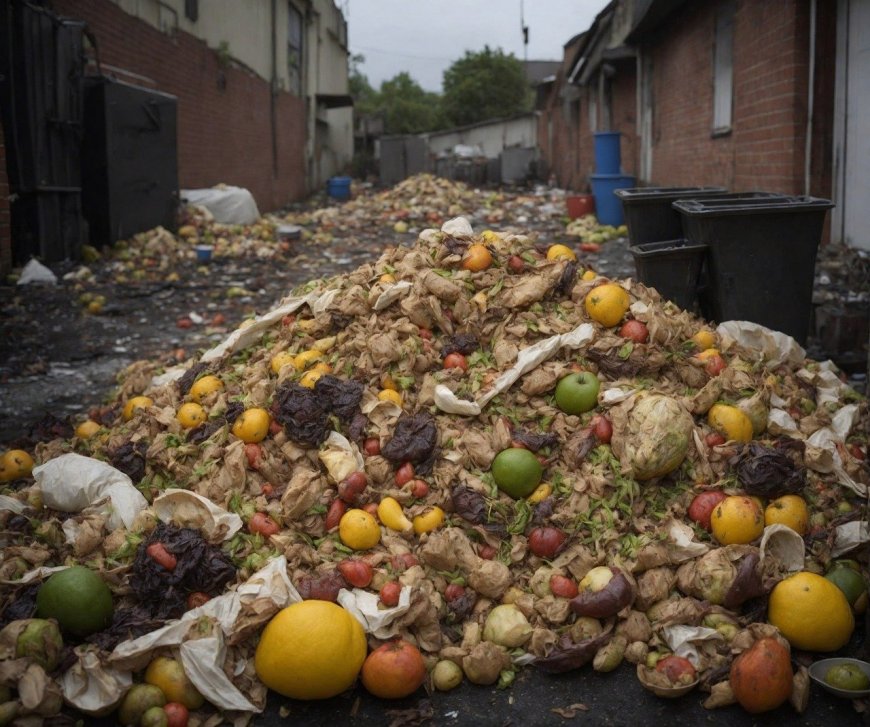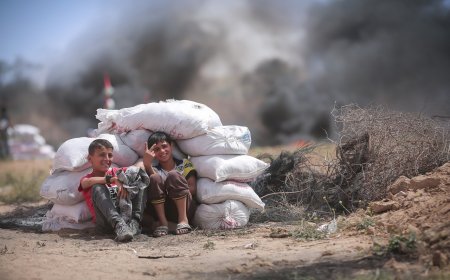Over 1 Billion Tons Food Wasted Amid Famine in Poor Contries
If God graces a person in abundance, let him not be stingy and let him not be wasteful.

Amid the tragedy of famine in poor countries and conflict areas such as the Gaza Strip, there is still a lot of food waste all over the globe. The United Nations Environment Programme (UNEP) in its 2024 Food Waste Index Report reveals that 1.05 billion tonnes of food are wasted. The report contains the latest data starting from 2022.
A report published in unep.org ahead of International Day Without Waste said that about 19 percent of food available to consumers is lost overall at retail, food service, and household levels. The amount adds up to about 13 percent of the food lost in the supply chain, as estimated by the Food and Agriculture Organization of the United Nations (FAO), from post-harvest to the time of sale. “Food waste is a global tragedy. Millions of people are going hungry right now because food is wasted around the world,” said Inger Andersen, Executive Director of UNEP.
He explained that the ongoing problems are not only impacting the global economy but also exacerbating climate change, biodiversity loss, and pollution. The report noted that most of the world's food waste comes from households about 631 million tons or contributing 60 percent of the total food wasted. Of this, the food service and retail sectors accounted for 290 and 131 million tonnes.

On average, each person throws away 79 kilograms of food each year. This amount equates to 1.3 meals daily for everyone in the world affected by hunger, quoted from the report. The report, co-authored with WRAP, a British climate action NGO, reveals that this problem does not only occur in developed countries. Following an almost twofold increase in data coverage since the publication of the 2021 Food Waste Index Report, there has been an increase in convergence between rich and poor groups.
High-income, upper-middle-income, and lower-middle-income countries have an average difference in household food waste levels of just seven kilograms per capita per year. A larger gap occurs in the variation between urban and rural populations.
In middle-income countries, for example, rural areas generally have less waste. One possible explanation is recycling of pet food scraps, animal feed, and home composting in the countryside. To that end, the report recommends focusing efforts on strengthening food waste reduction and composting in urban areas.
According to the same report, there is a direct correlation between the average temperature and the level of food waste. Countries with hot temperatures have more food waste per capita in their households. According to the report, this is likely due to increased consumption of fresh foods containing fewer edible portions of food and a lack of strong refrigeration and preservation solutions.
Higher seasonal temperatures, extreme heat phenomena, and drought make storing, processing, transporting, and selling food safely more difficult. The presence of such problems is often considered to cause a large amount of food to be wasted or lost.
UNEP experts argue that food loss and waste produce up to 10 percent of global greenhouse gas emissions -- nearly five times the total emissions compared to the aviation sector. For this reason, reducing emissions from food waste is essential.
Amid soaring food waste, there is still room for optimism to improve existing conditions. The report recommends that public-private partnerships to reduce food waste and the impact on climate and water pressures are being embraced by a growing number of governments at all levels.
The report exemplifies that Japan and the United Kingdom experienced reductions in food waste of 18 percent and 31 percent, respectively. That suggests that changes on a large scale are possible if food is rationed properly.
The report provides the most accurate global estimates of food waste at the retail and consumer levels, as well as providing guidance for countries in improving data collection and best practices, in line with Sustainable Development Goal 12.3 to halve food waste by 2030.
Islamic teachings
In her article published on Alhakam.org entitled 'The disturbing reality of food waste and how Islamic teachings can help', Lubna Junaid said that moderate Islam teaches that if God has endowed a person with abundance, he should not live in a miserable state, nor live excessively in a wasteful state. Apparently, he was aware of and grateful for the favor of God and took the path between the two.
In QS Al-A'raf verse 31 Allah SWT says:
"O children of Adam, take your adornment at every masjid, and eat and drink, but be not excessive. Indeed, He likes not those who commit excess."
Meanwhile, QS Al-Isra verse 27, Allah says:
Lubna writes, Islam forbids extravagance in any aspect of one's life — be it time, energy, wealth, or even food. If God has endowed us with more than we need, then we are obliged to give thanks to Him, and as a token of gratitude and appreciation, we should strive to share and distribute that surplus to the poor and needy.

“And it was he who made the gardens that were barred and unbarred, the date trees and the fields of corn, whose fruits were varied, olives and pomegranates, both of the same kind and the indistinguishable. Eat each fruit when it bears fruit, but pay for it on the day of harvest and do not exceed the limit. Indeed, Allah does not like those who go beyond the limits.” (QS Al-Anam :141).
From this verse we understand that food is the main source of garbage. However, God doesn't just command us not to waste it. In the same verse, He also teaches us how to avoid it. God commands us to distribute our food to the poor — not from leftovers that have been brought to market, but on the same day when it is harvested.
For many people in the world, especially in countries where food is plentiful and cheaper, wasting food is already an unidentified habit. They buy more food than necessary, leave fruits and vegetables to spoil at home, or eat larger portions than can be eaten. Food scraps are often underutilized and leftovers that can still be consumed or composted are simply thrown away.
Lubna writes, all such habits put extra pressure on natural resources and damage the environment. When we waste food, we waste the labor, labor, investment, and valuable resources (such as water, seeds, feed, etc.) that are used to produce food. Reducing food waste and waste is very important in a world where millions of people go hungry every day.







